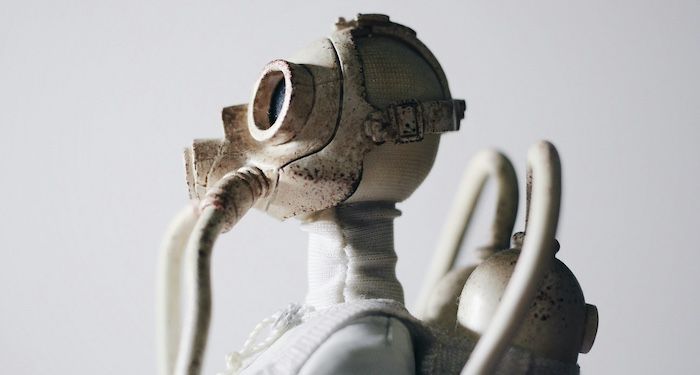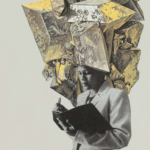
What is Going On With the 2023 Hugo Awards?
Editor’s note: This piece has been updated with new information.
‘Tis I, your local publishing and SF/F auntie, here to help answer a new “What the heck is going on?” This time, our subject is the 2023 Hugo Awards. If you’re on social media and follow any SF/F folks, chances are you’ve seen posts about eligibility, possible censorship, wonky voting numbers, EPH, Neil Gaiman, R.F. Kuang, and more. A lot of this may seem like extremely inside baseball, but (while I don’t care if you ever understand what EPH is) it’s an important moment for an historically-important award, and it’s worth talking about what is going on, and what might happen next.
Let’s start with the Hugo Awards themselves. I’ve long been an advocate of readers voting in them, mostly because a broad and distributed voting base is the best way to ensure a diverse and inclusive slate of nominees, and to minimize slate-voting attempts (more on that in a minute). And it’s not (theoretically) hard – anyone who is willing to fork over $50ish dollars can vote! With that $50, you not only get voting rights but a voter packet of the shortlisted nominees. Given how many categories there are in the Awards, that is A LOT of reading material. (Get all the details on how and why to vote right here.)
The Hugo Awards, in addition to being very open to potential voters, are also historically pretty messy. This is inevitable – it’s a process run entirely by volunteers, and that volunteer committee that changes in full or in part (more on that as well, in a minute) every year based on where WorldCon is being held. Max Gladstone does an excellent job breaking down how that works if you’re interested, but the TL;DR is that whichever group of volunteers in whichever country and city successfully won the right to host the next WorldCon also make up the selection committee. There’s no over-arching, governing body for the Awards themselves, although there are selection and voting rules laid down by the World Science Fiction Society (WSFS). Those rules have been updated, since the Sad and Rabid Puppies debacle of 2015, in an attempt to make the nominations and voting less open to slate-voting (meaning, concerted efforts by a specific group to get only their titles through to the final round). And it seems possible, although by no means a certainty, that another update could be in the offing.
When Chengdu won the bid for the 2023 Worldcon, which then made them the administrators for the 2023 Hugo Awards, many in the SF/F community had concerns. China is known to have strict censorship rules, with real consequences for those who ignore or flout them. China has also been internationally sanctioned by many countries over the treatment of the Uyghurs, a largely Muslim population in Xinjiang, which has been declared a crime against humanity by Amnesty International. Some writers signed a petition and declined nominations in protest. Others publicly grappled with the issues, but didn’t withdraw. Some books that many expected to be on the longlist weren’t, most notably Babel by R.F. Kuang, but neither the author nor Worldcon said anything about why. It was a difficult and fraught situation, especially for newer or less well-known authors, whose careers could be made by a nomination on the shortlist, much less a win in their category.
Sadly, it didn’t get any less fraught, and also faced many technical issues. I personally was a nominating voter who was periodically unable to access my voting account and struggled to get assistance from support, and I know others faced similar issues. A finalists list went up only to be withdrawn, with the explanation of it being an incorrect test list that wasn’t meant to be public. There were also issues with translation between Chinese and English throughout the process, although that is, as far as I am concerned, just inevitable growing pains if we want these awards to continue to have weight and interactions outside the English speaking world. (When you look, for example, at how much amazing Chinese-language science fiction Ken Liu alone has been responsible for bringing to the English market, I think you’ll agree that this is a good and worthy goal.)
And then the nomination statistics were released, and released late, and all hell broke loose. People wanted to know why it took so long. Then, it became clear that some notable contenders, including Babel, Xiran Jay Zhao, and an episode of the show Sandman, were deemed ineligible for reasons that are deeply unclear, if not nonexistent. Then, people who are good at numbers and spreadsheets quickly noted discrepancies in the tallies throughout the rounds; Cora Buhlert expertly broke it down. You’ll see the aforementioned EPH repeated quite a bit in these discussions; that stands for “E Pluribus Hugo,” and is the tallying method introduced in 2017 to reduce the impact of slate voting.
Folks have been asking questions and demanded answers, and none have been forthcoming. Neil Gaiman showed up in an extended back-and-forth on vice-chair and co-head of the Hugo Awards Selection Exec Committee Dave McCarty’s Facebook, of all things, trying to find out why Sandman had been declared ineligible. When even Neil Gaiman can’t get a straight answer, well, it doesn’t look good, does it? And it doesn’t just affect the authors declared ineligible: every finalist and winner now has the validity of their work’s inclusion thrown into doubt.
McCarty is the only member of the committee who has made statements at the time of this post’s writing, and most of them have been vague at best, dismissive and rude at worst. On January 27, McCarty issued an apology on Facebook for those comments, but offered no further explanation on the questions previously asked.*
Theories, of course, are flying every which way, and most of them allege deliberate wrong-doing. Examples include: The Sandman episode was dq’d because it had ghosts in it; Kuang was declared ineligible because she might give a speech in Chinese; McCarty was influenced by the Chinese government, or covering for Chinese committee members who could be subject to repercussions. None of these theories explain everything, and none are backed up by much evidence at the moment, which only means that the theories continue to be varied and wide-ranging. Camestros Felapton, whose name is everywhere in the comments and discussion on this, just recently posted about the “Unified Stuff-Up Theory“, which is one of the simplest and least sinister explanations – sometimes, people do a bad job with data because they’re volunteers, there were tech issues and language barriers, and they’ve never done it before. Having served on volunteer committees before and having put together large events, my experience tells me this is extremely likely. But as Felapton says, it doesn’t cover everything, and that doesn’t mean that foul play or censorship didn’t impact the Hugos. (¿Porque no los dos?) Chinese SF/F fan Zimozi Natsuco was recently published on File770 (truly the best source for continuing updates, if you want to follow along at home) with some extremely pointed words to that effect, as well as calling out issues of post-colonialism in the handling of both the con itself and the backlash.***
Whatever actually happened, the hit the Hugo Awards have taken in trust and reputation is large, and particularly inside of the community that are, after all, the reason they exist. If we never figure out what happened, and different people are involved next year anyway since it’s a new committee and a new Worldcon, then what? How do they move forward from here? Many people have many proposals, of course, and I particularly appreciated Abigail Nussbaum’s breakdown of some potential next steps.
Glasgow 2024 has clearly been paying attention; when they opened nominations on January 27th, their press release specified that any disqualifications and withdrawals would be accompanied by explanations.** If you’re interested in being part of “next,” here’s a link to the WSFS Membership page – unfortunately, only members actually attending Worldcon and the Business Meeting can vote on proposals submitted. If that’s not you, that’s ok – but if you made it all the way to the end of this post, you might like to know that there are other ways you can stay engaged! You can still be a supporting member, which grants you nomination and voting rights for the Awards themselves; you can make your opinions known to WSFS and Worldcon Glasgow 2024. You can volunteer, if that’s something you have time and energy for! And you can read and discuss SF/F with your friends, on-line and off-, whatever their eligibility.
Editor’s Updates:
*Updated with McCarty’s apology
**Updated with Hugos 2024 nomination information
***Updated to include the statement by Zimozi Natsuco







